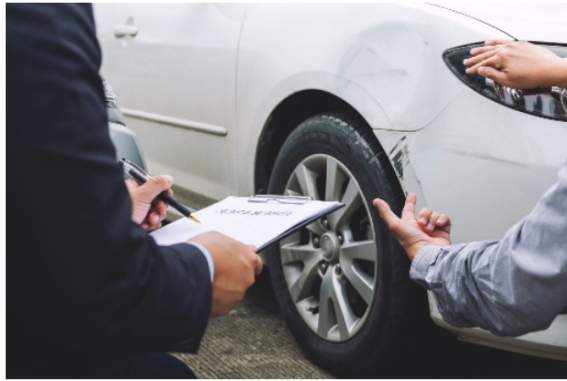Table of Contents
Have you ever encountered complex legal terms relating to car accident claim? If you know what these words mean, navigating the legal system and comprehending your case will be easier.
If you are involved in a car accident, it is essential to hire the car accident lawyers at Buckhead Law Saxton Accident Injury Lawyers, P.C., or other experienced firms to help you understand the legal process and use these terms effectively.
Here are some terms you may encounter during a car accident claim:
1. Burden of Proof
In law, the concept of “burden of proof” means that one party bears the burden of demonstrating the integrity of their assertions. The plaintiff or the injured party frequently has the burden of proof in a car accident claim.
This means that the person seeking compensation must provide sufficient evidence to support their version of events and demonstrate the negligence or fault of the other party involved.
Practically, this could involve presenting eyewitness accounts, traffic camera footage, or expert testimonies. A successful car accident case must meet the burden of proof since the court needs reliable evidence to reach its conclusions.
2. Damages
Damages in the context of car accident claims refer to the monetary settlement the injured party requests to compensate for losses sustained in the accident. There are two primary categories of damages: non-economic and economic
Economic damages include measurable losses like lost wages, medical costs, and property damage. Conversely, non-economic damages are more individualized and include intangible losses such as emotional anguish, pain and suffering, and diminished quality of life.
3. Pain and Suffering
Pain and suffering is frequently used in personal injury cases, including car accident claims. It speaks about the injured party’s bodily and psychological suffering brought on by the accident.
In contrast to economic damages, which can be measured with an actual monetary amount, pain and suffering are more individualized and challenging to measure.
4. Facts of Loss
Facts of loss pertain to the detailed information surrounding the car accident, including the events leading up to it and its aftermath. Collecting and documenting the facts of loss is crucial for building a solid case. Getting the police report, interviewing witnesses, and saving pertinent evidence like pictures of the accident scene or vehicle damage may all be necessary to do this.
5. Negligence
Negligence is a legal term that plays a central role in car accident claims. It refers to the failure of one party to exercise reasonable care, resulting in harm or damage to another.
To establish negligence in a car accident case, the injured party should prove four key elements: duty, breach of duty, causation, and damages.
Duty involves showing that the at-fault party was legally obliged to exercise reasonable care. Breach of duty requires demonstrating that the at-fault party failed to meet this obligation.
Causation establishes a direct connection between the breach of duty and the injuries sustained, and damages refer to the harm the injured party suffered.
Successfully proving negligence is crucial for holding the responsible party accountable and securing compensation.
6. Insurance
Insurance is pivotal in providing financial protection for both parties involved in car accidents. Understanding the various types of insurance coverage, such as liability insurance, collision coverage, and personal injury protection, is essential for navigating the aftermath of a car accident.
7. Liability
Liability refers to the legal responsibility for the consequences of a car accident. Establishing liability is crucial to any car accident claim, as it determines which party is at fault and, consequently, responsible for compensating the injured party.
8. Settlement
A settlement is an agreement between the parties involved in a car accident claim, often outside court. It typically involves the injured party receiving monetary compensation in exchange for dropping any further legal action against the at-fault party.
Final Thoughts
Navigating the legal terrain of a car accident claim can be challenging, but understanding these standard legal terms is a crucial step toward a successful resolution. Whether dealing with the burden of proof, assessing damages, or establishing liability, knowledge empowers you to make well-thought-out decisions and advocate for your rights effectively.
In the aftermath of a car accident, seeking legal guidance from professionals experienced in personal injury law can make all the difference in securing fair compensation and moving forward on the road to recovery.
